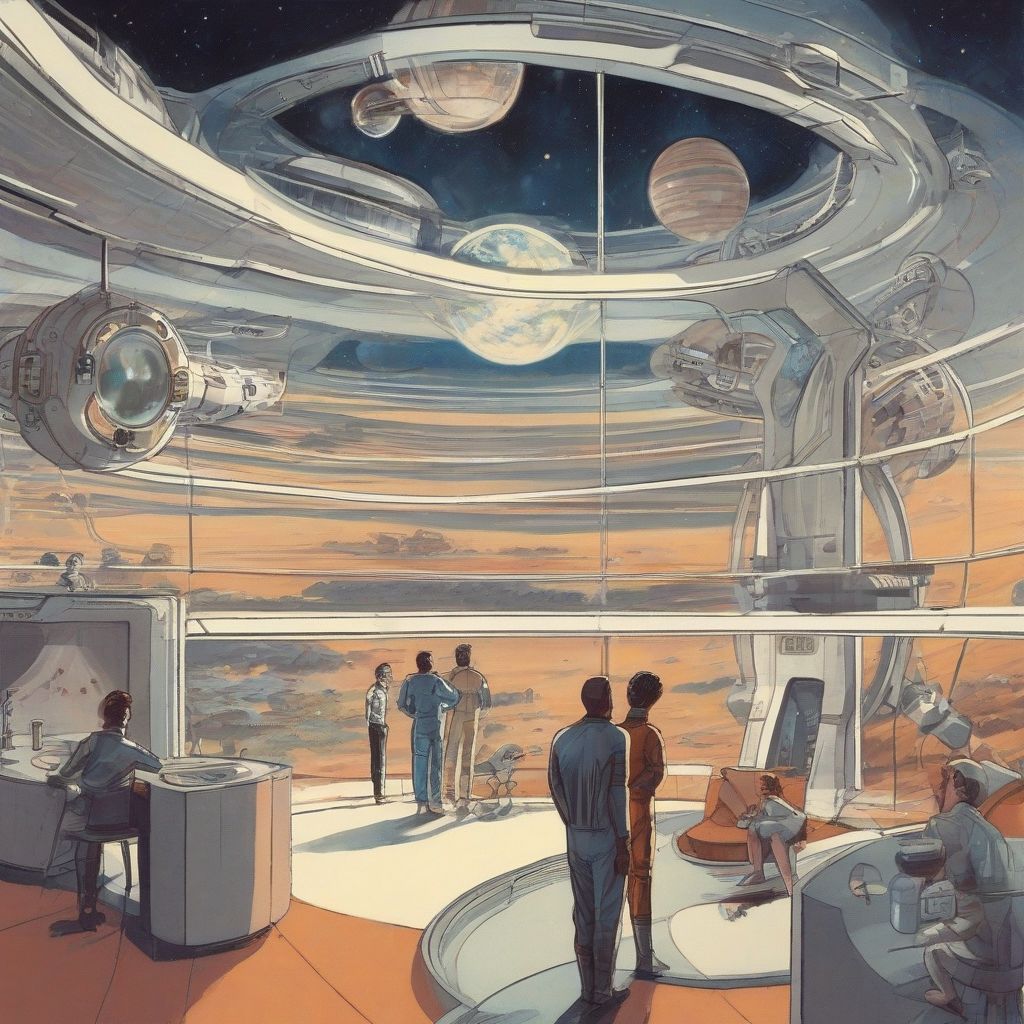Remember gazing up at the night sky as a child, mesmerized by the twinkling stars and the vastness of the universe? We dreamed of rockets, aliens, and maybe even intergalactic vacations. The future of space technology is no longer confined to the realm of science fiction. We’re on the cusp of a new era of space exploration, one driven by groundbreaking innovations that promise to redefine our understanding of the cosmos and our place within it.
From Reusable Rockets to Space Tourism: The Present Leaps Forward
Just a few decades ago, the idea of ordinary citizens venturing into space seemed like a far-fetched fantasy. Today, companies like SpaceX and Blue Origin are turning this fantasy into reality. Reusable rockets, a technology pioneered by SpaceX, have dramatically reduced the cost of space travel, making it more accessible than ever before. These incredible feats of engineering are not just ferrying astronauts to the International Space Station – they’re paving the way for space tourism, with companies offering suborbital flights and even plans for orbital hotels.
 Space Tourism Concept
Space Tourism Concept
[amazon bestseller=”space tourism”]
But the innovations extend far beyond giving tourists a cosmic view. The James Webb Space Telescope, launched in late 2021, is already sending back breathtaking images of the universe, peering further back in time than ever before. This technological marvel allows us to study the formation of the first stars and galaxies, unraveling the mysteries of our universe’s origins.
Mining the Stars: Space Resources and Their Potential
Looking ahead, the future of space technology is focused on sustainability and resource utilization. Space mining, once relegated to the realm of science fiction, is now a serious area of research and development. Asteroids, often referred to as “flying gold mines,” hold vast amounts of precious metals, water, and platinum-group metals, resources essential for continued technological advancement here on Earth.
Private companies and government agencies alike are investing heavily in developing the technologies necessary to mine these celestial bodies. Imagine a future where resources are no longer a constraint, where we can harness the abundance of space to fuel our growth and innovation. This isn’t just about profit; it’s about ensuring a sustainable future for humanity.
Artificial Intelligence: The Brains Behind Our Spacefaring Future
No discussion about the future of space technology would be complete without mentioning artificial intelligence (AI). AI is already playing a crucial role in space exploration, from autonomous spacecraft navigation to data analysis. As we venture further into the cosmos, the ability of AI to process vast amounts of data, learn, and adapt will become indispensable.
Imagine AI-powered rovers exploring the surface of Mars, analyzing rock samples, and searching for signs of past or present life, all while communicating their findings back to Earth in real time. AI will not only accelerate the pace of discovery but also allow us to explore environments too hostile or distant for human astronauts.
Life Beyond Earth: The Search for Extraterrestrial Life
The age-old question, “Are we alone in the universe?” continues to captivate our imaginations. The search for extraterrestrial life is no longer a fringe pursuit but a serious scientific endeavor, fueled by the discovery of thousands of exoplanets, planets orbiting other stars.
 Exoplanet With Two Suns
Exoplanet With Two Suns
New telescopes and space missions are being designed specifically to search for biosignatures, telltale signs of life, in the atmospheres of these distant worlds. Imagine the profound impact of discovering even microbial life on another planet, forever changing our understanding of life in the universe.
The Future is Now: Challenges and Opportunities in Space
While the future of space technology is brimming with promise, it’s not without its challenges. Space debris, the growing cloud of defunct satellites and rocket parts orbiting Earth, poses a significant threat to future missions. Addressing this issue through innovative solutions like space debris removal systems will be crucial for ensuring the long-term sustainability of space exploration.
Another challenge lies in international cooperation. As more countries and private companies enter the space race, fostering collaboration and responsible space governance will be paramount to prevent conflict and ensure the peaceful and equitable exploration of our shared cosmic backyard.
Looking Up: A Future Full of Wonder
The future of space technology is a testament to human ingenuity and our insatiable thirst for knowledge. From space tourism to asteroid mining, from AI-powered spacecraft to the search for extraterrestrial life, we are on the verge of a new era of discovery and exploration.
As we continue to push the boundaries of what’s possible, one thing is certain: the future of space technology holds endless possibilities, promising to reshape our understanding of the universe and our place within it. So, keep looking up at the stars, for they hold the keys to unlocking a future filled with wonder and endless potential.
